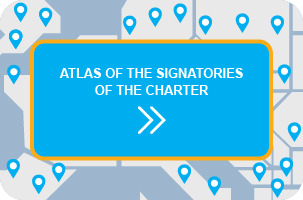CEMR key priorities on gender equality adopted – 13.12.2016
The autumn meeting of the CEMR Policy Committee, 12-13 December 2016, saw the renewal of its members and of the Executive Bodies. CEMR’s new Policy Committee is made up of over 170 local and regional elected representatives, of which 46% are women and 54% are men.
Additional information on the new Co-Presidents, Vice-Presidents and Chair of the Financial Management Committee available via the CEMR website.
2016 was a milestone year for one of the most significant gender equality initiatives launched by the Council of European Municipalities and Regions to date: the European Charter for Equality of Women and Men in Local Life which celebrated its 10th anniversary. The Charter has been an inspiring tool to support the work of European local and regional governments in advancing equality of women and men in their territories.
Gender equality and the Charter had a central place in the two-day reunion of the Policy Committee. On the first day, a thematic debate on gender equality at European and local levels was organised, followed by a gala dinner. During the second day of the Policy Committee, Ibon Uribe, President of the CEMR Standing Committee for Equality and Mayor of Galdakao, presented the policy document CEMR key priorities on gender equality (EN) for adoption.
The 10 key priorities were elaborated over several months through cooperation of the CEMR experts from the national associations, an ad hoc Task Force and members of the Standing Committee for Equality. The aim of the document is to take into account the diminishing presence of gender equality on the EU agenda (which is revealed by less funding/fewer programmes for gender equality and no formal Strategy on gender equality from the European Commission) and raise the voice of local and regional governments.
The key priorities also serve as a guide for where to direct advocacy energies on European level, based on the current political priorities of the Juncker Commission. They are based on general principles that CEMR members have approved of, while taking into account results and insights from the Pilot project on the implementation of the European Charter for Equality.















